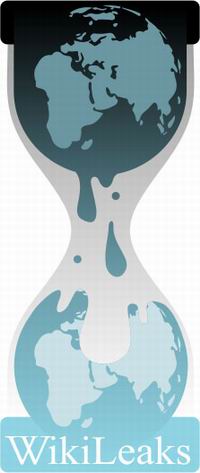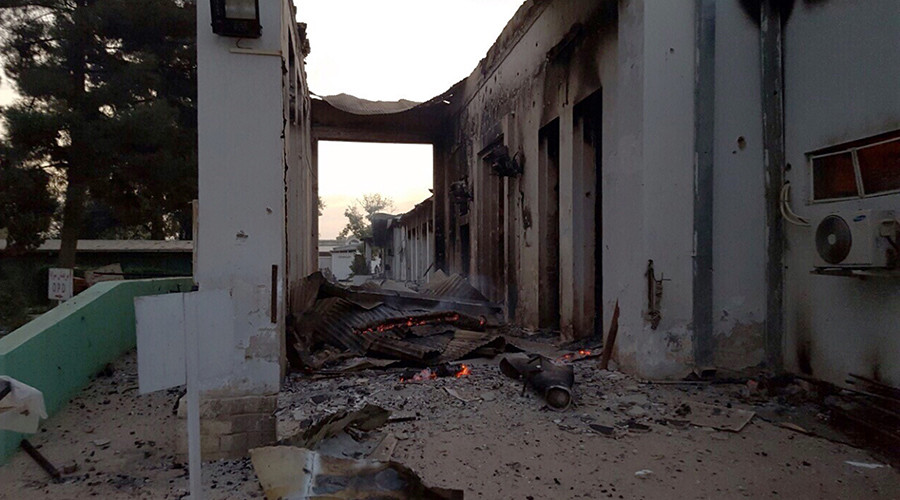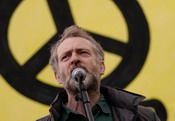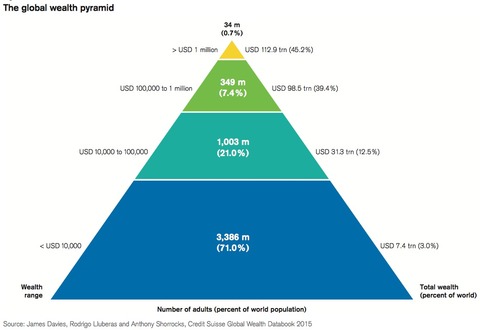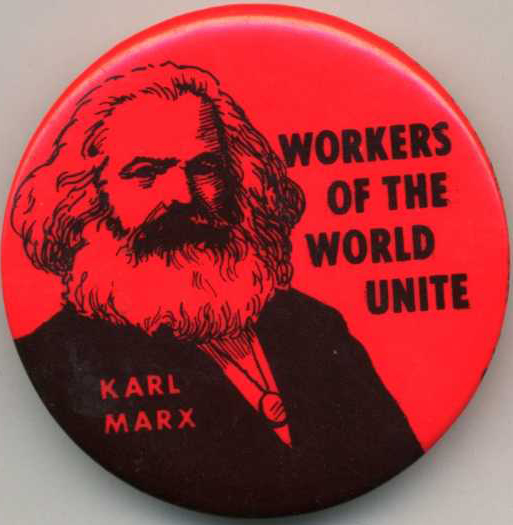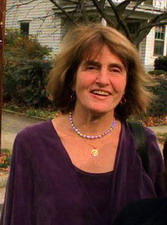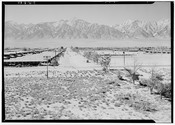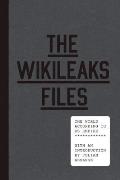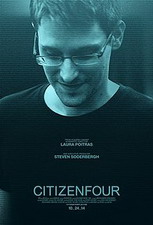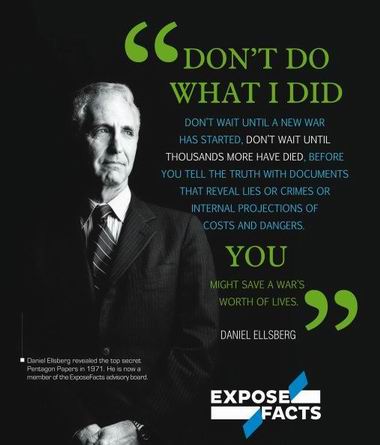If you're having trouble viewing this message, open it in a browser window.
|
|
|
|
|
|
Other Voices: The Connexions Newsletter
October 24, 2015
Whistleblowers and the murky world of national security
As Noam Chomsky has said, governments use the spectre of threats to
‘national security’ to justify secrecy, attacks on civil liberties, and
the relentless build-up of the national security state. In reality, says
Chomsky, the main enemy, in the eyes of the state, is its own
population. Whistleblowers -- people like Daniel Ellsberg, Julian
Assange, Chelsea Manning, and Edward Snowden -- play a vital role in
letting the public know what governments are really doing. At great risk
to themselves, they tell the truth which governments seek to hide.
In his article The Fog of Intelligence, Tom Engelhardt
examines the contradictions of the American intelligence apparatus: a
vast bureaucracy with more than a million employees and a budget of $70
billion a year which is continually unable to foresee developments which
are perfectly obvious to journalists and others who have no access to
secret information.
Another illustration of the national security mindset comes in the
reaction of the British media – shocked! aghast! -- to Labour leader
Jeremy Corbyn’s statement that as Prime Minister he would not order the
launch of nuclear weapons under any circumstances.
Also in this issue of Other Voices, we recall the day --
October 27, 1962 -- when the world was seconds away from nuclear war.
After an American warship attacked a Soviet submarine – an act of war in
itself, as well as an act of insanity – two of the three commanders on
the submarine were prepared to launch a nuclear weapon, as they were
authorized to do if they came under direct attack while unable to
communicate with their military high command. The third commander on the
submarine, Vasili Arkhipov, refused to agree, and because the unanimous
of all three commanders was required, the missile was not launched.
Arkhipov’s split-second decision reminds us all that we are all
confronted with moral choices, and that those choices can have
far-reaching consequences.As always, we invite you to share this
newsletter with your friends. You can forward this email, or send them
the link to the Other Voices home page on the Connexions website at www.connexions.org/Media/CxNewsletter.htm.
Your feedback is appreciated - and so are donations to keep us doing what we're doing!

|
|
The topic of the week is Whistleblowers.
Whistleblowers are people who witness illegal or unethical behaviour
taking place in the organization they work for – be it government or
corporate – and who report what is going on. Whistleblowing can occur
within the confines of the organization, by reporting wrongdoing to
management. Commonly, though, it is those in positions of power who are
the very ones engaged in unethical or illegal behaviour, and then the
only option is to go public, typically through the media.
Governments and corporations may often pay lip
service to the importance of protecting whistleblowers, but in reality
they are almost always persecuted. Repercussions can range from being
fired to being imprisoned.
The Connexions Subject Index features a range of materials – articles, books, films -- on whistleblowers. Explore them here
|
|
|
The Fog of Intelligence
Tom Engelhardt asks why it is that the United
States, with an enormous intelligence apparatus comprising 17 agencies,
more than a million employees, and a budget of $70 billion annually, and
with access to data from satellites and from communications
surveillance of pretty much everyone on earth, can so consistently and
spectacularly get it wrong. Read more
Keywords: Military Intelligence - Security & Intelligence
|
|
|
Mouths Wide Shut: Obama’s War on Whistleblowers
The Obama administration has waged a war on
whistleblowers – and journalists who reveal ‘secrets’ -- that is
unparalleled in the history of the U.S. government. The whistleblowers’
treatment “serves as a warning to all potential apostates. Edward
Snowden remains in Moscow. Julian Assange is still holed up in the
Ecuadoran embassy in London. Chelsea Manning is in prison, serving a
35-year sentence. Jeremy Hammond, Jeffrey Sterling, and Barrett Brown
all face years of jail time. Indeed, under Obama, whistleblowers face a
total of 751 months behind bars -- compared to 24 months for all other
whistleblowers combined since the American Revolution.” Read more
Keywords: Abuse of Power - Whisteblowers
|
|
|
A Short History of U.S. Bombing of Civilian Facilities
The recent U.S. attack on the MSF
hospital in Kunduz, Afghanistan, is by no means an isolated incident.
The U.S. has a long history of bombing civilians facilities including
hospitals The Intercept has compiled a list. Read more
Keywords: Bombing - War Crimes
|
|
|
Nuclear War and Corbyn – The Fury And The Farce
In the eyes of the mainstream media, Britain’s
new Labour leader Jeremy Corbyn has committed the ultimate faux pas,
even worse than failing to sing ‘God Save the Queen’. Corbyn has
unequivocally stated that as Prime Minister, he would under no
circumstances issue an order to launch nuclear weapons. The media are
portraying his unwillingness to incinerate tens of millions of people as
the height of irresponsibility. Read more
Keywords: Media Bias - Nuclear War
|
|
|
Top 1 percent own more than half of world’s wealth
A new report issued by the Swiss bank
Credit Suisse finds that global wealth inequality continues to worsen
and has reached a new milestone, with the top 1 percent owning more of
the world’s assets than the bottom 99 percent combined. Of the estimated
$250 trillion in global assets, the top 1 percent owned almost exactly
50 percent, while the bottom 50 percent of humanity owned collectively
less than 1 percent. The richest 10 percent owned 87.7 percent of the
world’s wealth, leaving 12.3 percent for the bottom 90 percent of the
population. Read more
Keywords: The Superrich - Wealth Accumulation
|
|
|
Organizers worth their salt
A few unions are recruiting salts these days, usually
young people who apply for low-wage jobs in retail, hospitality, or
logistics. But unions are reluctant to talk about salting, not wanting
to alert management to look out for suspicious characters. Read More
Keywords: Labour Organizing - Workplace Organizing
|
|
|
October 27, 1962 – Cuban missile crisis
On October 27, 1962, the world came to the
very brink of nuclear war. It escaped only by a hair’s breadth, thanks
to a life-and-death decision by a Soviet naval officer.
The Cuban Missile Crisis, which has been building since
October 14, was in danger of spiralling out of control because of the
illegal and high-risk U.S. naval blockade of Cuba. On this day, reckless
U.S. Navy commanders decided to drop depth charges on a Soviet
submarine (B-59) present in the area. The targeted submarine is armed
with a nuclear torpedo which it is authorized to launch if it is
directly attacked. The three senior officers on the submarine are
required to agree before a nuclear weapon is launched. Two of them want
to launch, but the third, Vasili Arkhipov, refuses to agree, and so the
launch is averted. Had the submarine fired its nuclear weapon, it is a
virtual certainty that the United States and the Soviet Union would have
been plunged into all-out nuclear war.
On the next day, U.S. President Kennedy and Soviet leader Nikita Krushchev agree to an end to the crisis. Read more
Keywords: Cuban Missile Crisis
|

|
|
Grace Lee Boggs, Legendary Activist, Dead At 100
Grace Lee Boggs was a revolutionary who spent her life working and
organizing in Marxist, civil rights, labour, Black Power, and community
organizations. Read more
|
|
|
Remembering Rosalyn Baxandall
Rosalyn Fraad Baxandall, who died October 13, was a pioneering figure of socialist feminism in the United States. Read more
|
|
|
170,000 pictures of Depression-era America
A new gallery has been opened with pictures of the Great
Depression in the US, depicting the everyday lives and struggles of
people. Read more
|
|
|
Ansel Adam’s lost internment camp photo
The photographer Ansel Adams made a series of trips in
1943 and 1944 to the Manzanar War Relocation Center in California, one
of 10 Japanese internment camps across the U.S. during World War II.
Some of his photos are now going on display. Read more
|
|
|
Book of the Week:
The Wikileaks files: The World According to the US Empire
By Julian Assange and others
A compilation of contributions from WikiLeaks
editor-in-chief Julian Assange, WikiLeaks section editor Sarah Harrison,
and a team of journalists, professors, and writers. The book is full of
eye-opening scholarly analysis of the diplomatic cables made public by
the WikiLeaks group, focusing on the 2010 - 2011 'Cablegate'
disclosures. It takes on a huge amount of data and delivers a thorough
introduction to the narratives of U.S. policy that the cables reveal. Read more
Keywords: U.S. Foreign Policy - Wikileaks
|
|
|
Film of the Week: Citizenfour
Citizenfour is a real life thriller, unfolding by the minute,
giving audiences unprecedented access to filmmaker Laura Poitras and
journalist Glenn Greenwald’s encounters with Edward Snowden in Hong
Kong, as he hands over classified documents providing evidence of mass
indiscriminate and illegal invasions of privacy by the National Security
Agency (NSA).
Keywords: National Security - Whisteblowers
|
Your support is needed to keep Connexions going
All
of the work of the Connexions project is done by volunteers, but our
expenses include rent, phone and computer costs and technical support,
as well as expenses related to our ongoing project of converting printed
archival materials into digital formats. You can make a one time or
regular monthly contribution through the donate page on the Connexions website.
|
Bequests
Many of us have made
working for social justice a lifetime commitment. If you are thinking
about leaving a legacy for social justice that will live on, you might
want to consider leaving a bequest to Connexions in your will. If you'd
like to discuss this option, please contact us: Connexions Archive and
Library, Toronto,
416-964-5735 or see the Bequest page..
|
October 24 - 30: Disarmament Week
November 2: International Day to End Impunity for Crimes Against Journalists
The Connexions Calendar is an online calendar that exists to
advertise events that support social justice, democracy, human rights,
ecology, and other causes. We invite you to use it to promote your
events. Adding events to the Connexions Calendar is FREE. We'll give you
a username and password which you use to log on. Use the contact form to arrange for a username and password.
Read more →
|
October 27, 1864: The First Workers' International
The founding convention of the International Workingmen’s
Association (the First International) adopts its “General Rules” which
will express the basic orientation of the International and guide its
actions. Written by Karl Marx, they begin with the unequivocal statement
“the emancipation of the working classes must be conquered by the
working classes themselves” – an insistence that liberation can only be
self-liberation, that it cannot be imposed or bestowed by an outside
organization or leader.
October 25, 1917: Outbreak of Russian Revolution
For several weeks Bolsheviks and
ordinary workers, soldiers, sailors, and peasants have been carrying on
extensive campaigns of agitation throughout the country against the
Provisional Government, which is determined to keep Russia in the war.
When the Provisional Government attempts to shut down the Bolshevik
newspaper and take over the headquarters of the Bolshevik Central
Committee, Red Guards and soviet workers take control of bridges and key
positions in the city, including the power stations, the central
telephone exchange, the General Post Office, the State Bank, and major
government buildings. The Revolutionary Military Committee then
publishes a manifesto proclaiming victory.
Oct 23, 1956: Outbreak of Hungarian Revolution
Outbreak of the Hungarian Revolution. Demonstrations of students and
workers march through Budapest. In the evening, police fire on unarmed
demonstrators; demonstrators start seizing weapons, and fighting breaks
out. The result is a revolution which overthrows the Hungarian
government but is eventually crushed by the Soviet Union.
Oct 22-27, 1996: Ontario Days of Action
The Days of Action, a series of demonstrations against the extreme-right Ontario government led by Premier Mike Harris.
|

Trying to change the world? We can help.
Getting your story across can be an uphill battle when your group is challenging the status quo. Our partner organization SOURCES can help you get your message out. As a SOURCES
member, you have an array of media relation tools at your disposal to
promote your events, books, articles, videos, etc. as well as tools to
get you in contact with those who can help you achieve your goals. The SOURCES news release
service is especially valuable for groups wants to inform the media
(and the public) about their issues. For more information about Sources please click this link.
|
|
Follow us on
twitter to stay up to date with company news and other information.
|
|
Like us on
Facebook to keep up with our news, updates and other discussions.
|
|
|
Copyright
Connexions 2015. Contents are licensed under a Creative Commons
Attribution Non-Commercial License. This means you are welcome to share
and republish the contents of this newsletter as long as you credit
Connexions, and as long as you don’t charge for the content.
Other Voices: The Connexions Newsletter, is available online here
This issue was edited and produced by Ulli Diemer.
Connexions
812A Bloor Street West, Suite 201
Toronto ON M6G 1L9 Canada
Phone: 416-964-5735
www.connexions.org
Enjoy this issue of Other Voices? Want to share with friends and family? Then we encourage you to share this link. All issues of OtherVoices are available on the Connexions website at /Media/CxNewsletter.htm
If you don’t want to receive emails from us anymore, click here to unsubscribe.
|
|


